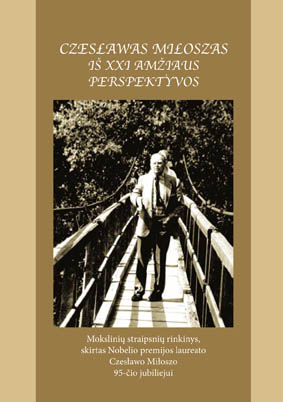Miłoszas tarp paveikslų
Miłosz Amid the Pictures
Author(s): Aleksander FiutSubject(s): Literary Texts
Published by: Vytauto Didžiojo Universitetas
Keywords: Czesław Miłosz; konferencija; conference; Kaunas
Summary/Abstract: Poet’s creative work frequently reveals unexpected aspects of his personality. This is the case in the poems devoted to painting where things meant for the eye are intended for the will of the word. Some of the poetic canvases become hardly identifiable. The attitude of the poet to the art of painting will become clearer if we compare poems devoted to specific paintings. For this purpose we have selected “The Garden of Earthly Delights” from Miłosz’s “collection”. Bosch’s painting is one of those pieces of art that stir never-ending controversies, provoke heated discussions and disagreements of experts concerning the interpretation of the details. What is Miłosz’s approach towards this polysemantic work? First, he relies on personal allegorising, allusions to his own poetry and the indirect dialogue with art historians. Thus, on the one hand, the poet solemnly eludes the opinions of experts by referring to personal and intimate experiences, daily sensations and naïve observations or themes that he continually revisits in his poems or essays. On the other hand, the methodology used for describing the triptych discloses deep knowledge of the poet about the artist and the epoch when the painting was done. Does the piece of art once considered sacred and provoking religious thrill lose something essentially important when it becomes an object of anthropological and moralistic reflection? The reminder of Miłosz’s statement about the erosion of religious imagination in the 20th century is here once again in place. The web of multiple symbols woven by Bosch conveys to the poet a live, still relevant even though grim message: the only paradise is the earthly life, but its deceptive pleasures have a high price. Miłosz’s merciless glance is appeased by an imaginary participation in the celebration of love, beauty and erotic charm rather than by faith or trust in God’s mercy. Thus, in his poetry through women’s pictures arousing admiration and secret desire, Eros resists the gloomy omnipotence of Thanatos.
Journal: Česlovo Milošo skaitymai
- Issue Year: 2007
- Issue No: 1
- Page Range: 9-17
- Page Count: 9
- Language: Lithuanian

